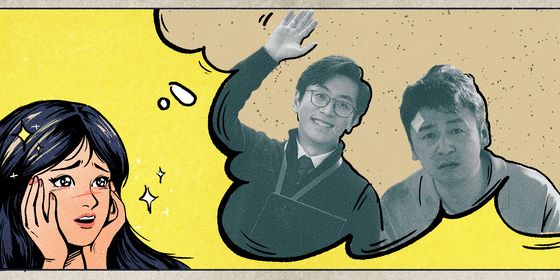Do government regulations mark the death sentence of the role-playing murder game industry?
Holding a booklet in hand, Baishi sits at a table, shedding tears of sorrow as she discovered the truth about herself: She wasn’t an orphan at all, but rather a daughter of a poor rural family who ran away from home after being unfairly accused of theft at school and repeatedly fighting with her parents. Oh, and she had leukemia.
Don’t worry, Baishi isn’t going to die—when the lights come back on at the end of the night, Baishi, who asked TWOC not to use her real name, melts back into her regular identity: a 26-year-old Beijing resident and fan of jubensha (剧本杀), literally “scripted kill,” a type of role-playing game with over 9 million players in China. On this night, Baishi and six friends have spent about four hours locked away in a Beijing mall acting out Bunnies Are Good, a script about six young leukemia patients and a father who lost his daughter to cancer.
Based on Clue, a classic board game developed in 1943, jubensha also takes inspirations from Murder Mystery, a live action role-playing (LARP) game from the 1980s, in which one player is secretly assigned the role of a murderer and the guests must figure out the identity of the killer by following a script and looking at clues.
In China, murder mystery games took off with the release of a hospital-themed deduction-based board game called Death Wears White in 2013. However, it was the reality show Who’s the Murderer, which premiered online on Mango TV in 2016, that was directly responsible for jubensha’s current format and popularity. On the show, a number of celebrities got together and had to solve a “crime” by rummaging around for clues, which started a trend and spawned the rapid creation of new scripts.
Today, jubensha is typically played by a small group in an indoor venue—either sitting around a table as in a tabletop game or, as a newer version, in an “immersive” environment that mixes role-playing with “escape room,” requiring players to interact and search of clues in several rooms. Players are given booklets outlining their characters’ backstory and notable traits, and must work together to solve a problem in the script, usually (but not always) a crime. A game host narrates the script, occasionally handing out clues and inviting players to interact with one another; in the immersive version, there could be other staff members playing supporting roles.
In major cities, a tabletop jubensha session costs about 200 yuan per person and can last four to five hours, or even a whole night, while the immersive version starts at 300 to 500 yuan. To Baishi, playing jubensha is to “pay hundreds of yuan for a taste of a different life.”
Since last July, when she picked up the game as a distraction from her exhausting job, Baishi has played more than 50 different roles: She has been a wife murdered by her husband, a psychologist grappling with her own mental demons caused by childhood trauma, and a woman trying to resolve a misunderstanding with her best friend and her ex-boyfriend a decade after their separation in high school.
The Business of Murder: Regulations Hit Role-Playing Murder Mystery Games is a story from our issue, “Sports for All.” To read the entire issue, become a subscriber and receive the full magazine.













